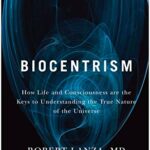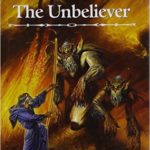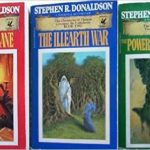Learning From The Secular—Part 2
I began this discussion last week with a look at an article by Stephen Donaldson entitled Epic Fantasy in the Modern World.
In this article, Donaldson defines fantasy as the external dramatization of the internal. That succinct definition resonated with me, though I understand that not every story, not every writer, creates the same kind of fantasy. An interesting topic for another time might be to compare types of fantasy. For now, I will accept Donaldson’s definition with an eye toward what else we might learn from his aims in writing.
Donaldson wrote this article by way of explaining the huge popularity of his novels. He believed that fantasy offered something in contrast to the rest of contemporary literature. Certainly not escapism.
he said that what makes great art great is that it “projects the artist’s ultimate passion against the void.”
If we can see “the void” as that which makes “man. . . a futile passion” – or that which makes human passions futile – then we can easily see why modern fantasy is so popular. Contemporary fantasy writers don’t take a mainstream attitude toward the void. The exception, of course, is the “horror short story.” In the horror short story, human beings are always swallowed by the void. And in that sense the horror short story is an example of mainstream fiction, despite the use of supernatural metaphors. Like mainstream fiction, the horror short story expresses, “The nightmare world, alienation and nausea, the quest for identity, and the comic dooms- day vision. . . .”
In all the rest of modern fantasy, however, the movement is away from futility. The approach of modern fantasy is to externalize, to personify, to embody the void in order to confront it directly. The characters in fantasy novels actually meet their worst fears; they actually face the things that demean them; they actually walk into the dark. And they find answers.
Since contemporary fiction today is more and more guided by postmodern thought, is what Donaldson said still valid?
I think even more so. In the face of a world that no longer believes answers are possible, fantasy offers an answer to “the void.” Fantasy offers hope. How much more so can Christian fantasy offer hope!
But I have to come back to the point of last week’s post. I believe CSFF writing has a tendency to write the Everyman story rather than painting one particular person who faces the internal void and finds his answer.
The truth is, the answer for character A is Christ and the answer for character B is Christ and the answer for character C is Christ.
However, my experience leads me to believe that Christ does not deal with each person exactly the same way. He touched the leper, then spoke and the man was healed, but the person with the withered hand just had to hold his hand out and it was restored. For one blind man, Jesus made a clay and put it on his eyes, but not for others.
The challenge for CSFF writers, then, I believe, is to write Christ as the unique answer for the void of this particular character in this particular story. In so doing, I believe the allegorical elements will stop feeling redundant and will take on the fresh excitement of new birth.
Beck







































